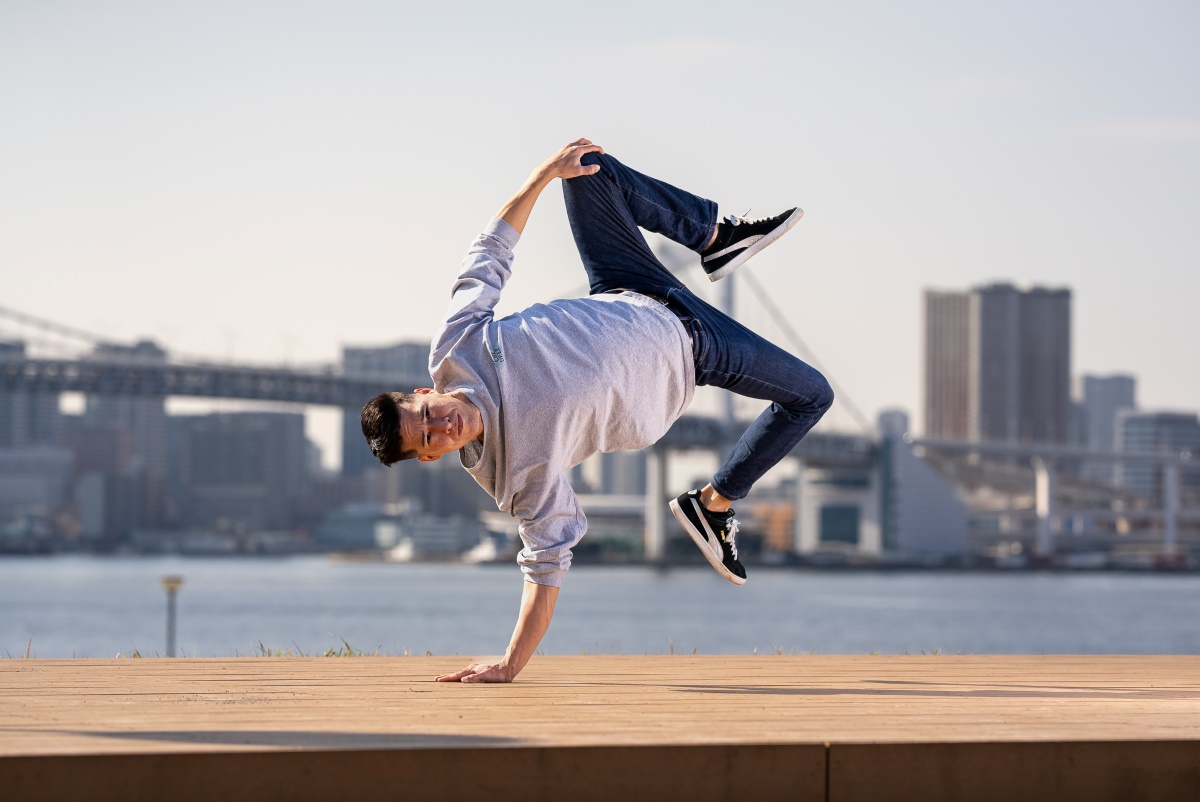
Breaking, both as a sport and subculture, has recently gained significant prominence in Japan and globally. In an exclusive interview with JAPAN Forward, Matthew Perez, professionally known as Matt Action, discusses his career, offers insights into the Japanese breaking scene, and reflects on the historic Olympic breaking event.
Perez is a former professional breaker and influential figure in the breaking community,
Excerpts follow:
Breaking Into Breaking
What piqued your interest in breaking?
That [happened] when I was maybe 15 years old. Actually, [I was] with a bunch of friends at school. They were doing many flips on the grass, and I had some gymnastics experience. So I was like, I can do flips. I went out there, and I had actually gained a lot of weight since I quit gymnastics, so I kind of fell on my face. It was pretty embarrassing.
I started taking it seriously when I got to high school. [That's where] I met Sergio "PowerSerge" Suarez, and I met RJ [Kool Raul]. Those two helped me out a lot.
Then I met this other guy named Sean, who's my business partner at Spin Control. We make products for breakers all around the world. He's a legend.
When I came to Japan, I [went to Waseda University] and got into this crew called Waseda Breakers. They're also a legendary crew as well.
What is it like in the world of a professional breaker?
In the United States, there's little support [for breaking] from the government or the private sector. There are very few people who are living off dance. But when you look at Japan, people like Shigekix, they're getting sponsored by Red Bull, by all these crazy companies that are huge.
If you live in Europe, there are a lot more opportunities as well. They have all these different ways of generating revenue. So depending on where you're from, and what connections you have, the opportunities are vastly different.
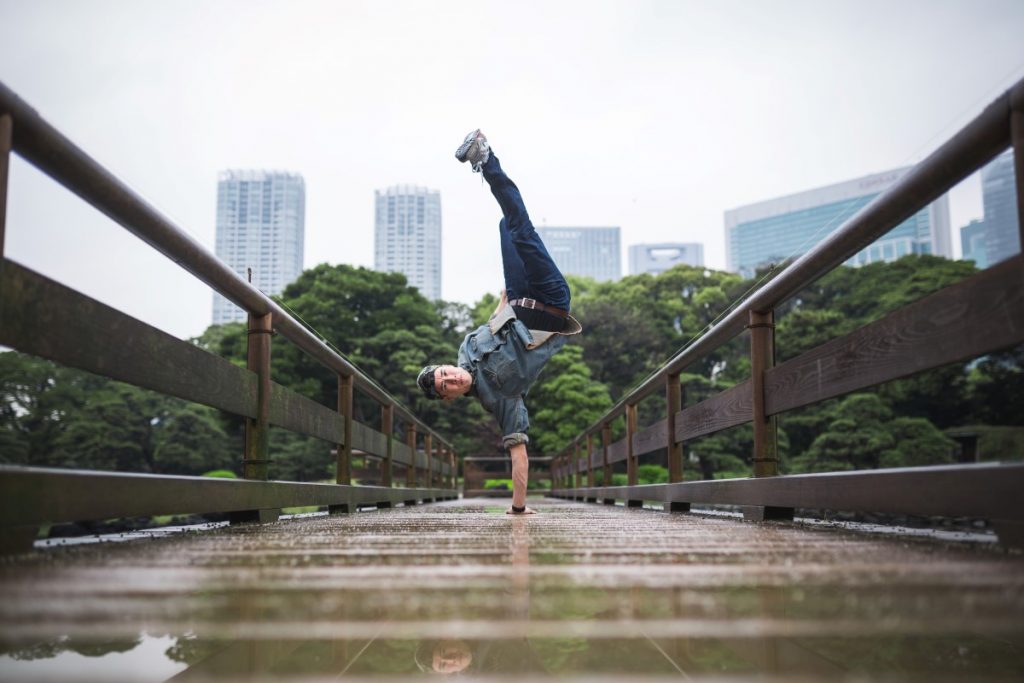
What are the challenges of being a professional dancer?
You can be a champion and the prize money on these things is little, to be honest, most of the time. Once in a while, there's [a prize] of $10,000 USD. But that's one payday, only one person walks away with it. So in the meantime, you've got to figure out how you are going to get by. There are so many different paths that you can take.
It's so young [breaking] that people are trying to figure out how to make it a sustainable career. Ami [Yuasa] and Shigekix [Shigeyuki Nakarai] are the first generation of people who are going to be able to really retire from breaking. I don't think that's ever happened in the history of the sport.
Is it Breaking or Breakdancing?
The correct term is "breaking." When it got started, the media just grabbed the terms breaking and dancing and put them together. Now, people want to call it by its original name, and I understand that.
I'm not that concerned [about the name] because people generally know what breakdancing is. If they care enough to get involved, they're going to find out that it's called breaking.
Dance Culture
Is there a difference in dance culture in the other nations you visited?
If you look at old-school New York, the movements are very bouncy, and then there are sudden rough movements. When it got out to Europe, it was very sweepy, the lines were very nice and very flowy. And then when you look at Japan, it's intricate and crazy. It was a style war that was around the '90s and 2000s.
Now with Instagram and the advent of YouTube, you're constantly being exposed. It's an exchange of culture and an exchange of movement, and I think that's why it's so awesome. We speak languages, but dance is communication through movement.
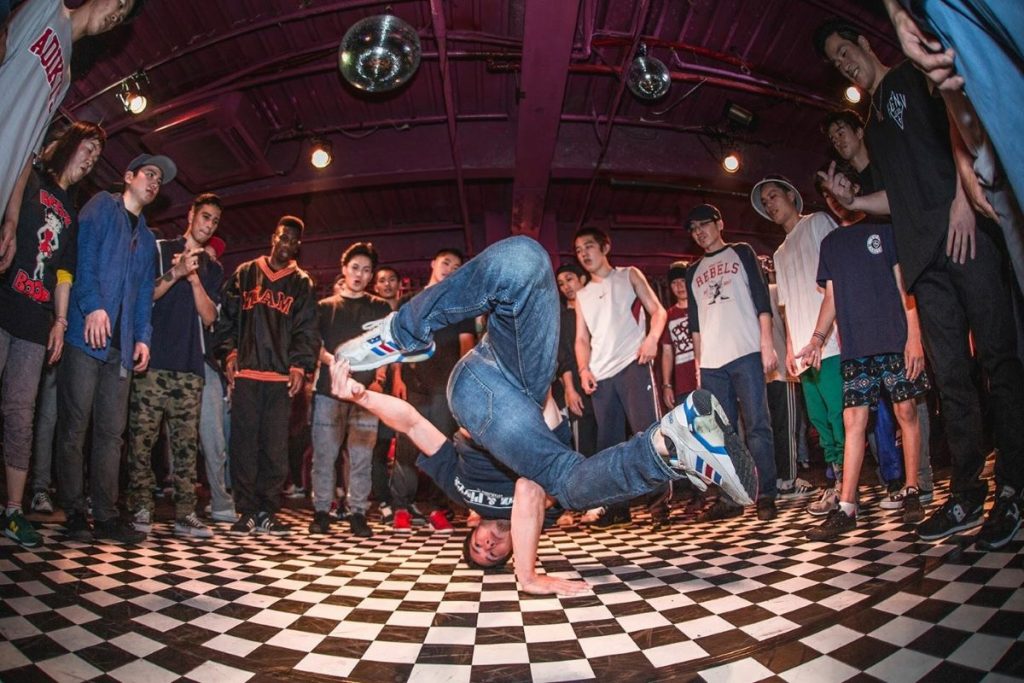
Are there any current hotspots that people can tune into?
Definitely. Tokyo, Osaka, and Okinawa are huge hotspots and each one is a bit different. If you're looking for events, look up "The Stage." They're happening all the time. I would say if you want to see something huge, try to see Super Break.
My event, M Control Jam, happens once a year. This year we had five or six international guests and an international DJ.
If you want to get involved in breaking itself, there are a bunch of studios. Since I'm an English speaker, I would recommend TNG Dance Academy.
If you just want to passively get involved, go follow it on Instagram, on The Spin Control. Stance Elements also has some of the best coverage of dance in the entire world.
Are there any stereotypes that you would like to dismantle?
I think it's easy to look at the headspin or the air flare and these pretty dynamic movements. People react like, "Oh, it's a gymnastics thing." Because it appeared in these movies it became pop culture for a little bit.
But when you get down to what breaking really is, it's more than just the dance. Because if you take it seriously as an art, it informs the way you can approach a lot of things in your life.
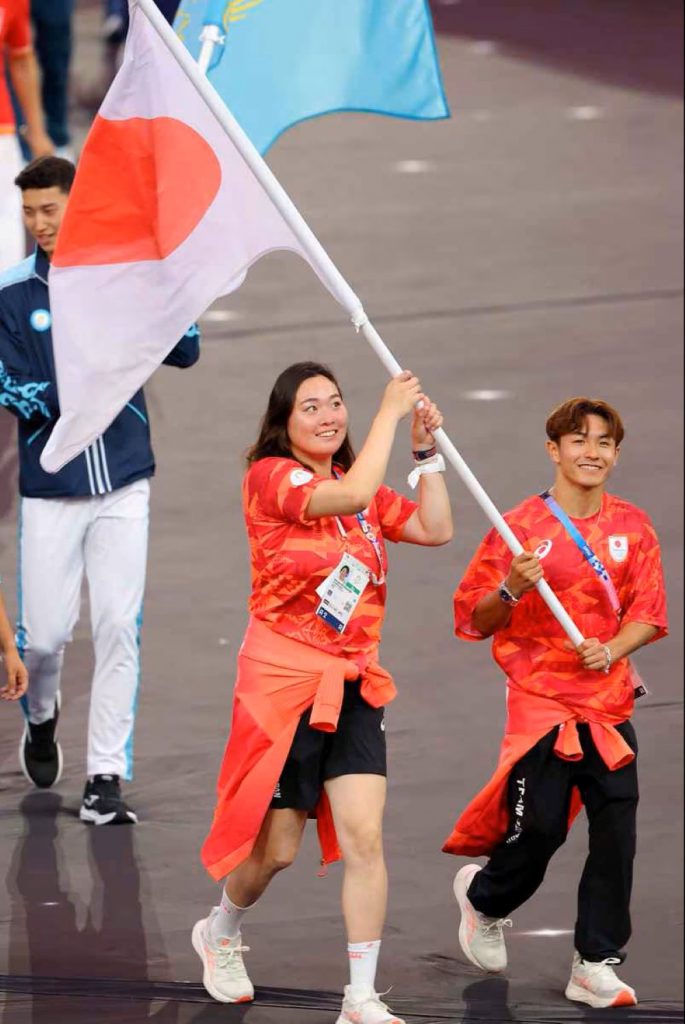
Breaking Into the Paris Olympics
At the Paris Olympics, some saw the performance of Australia's Raygun (Rachael Gunn) as "laughable." What are your thoughts on this kind of media attention?
We're getting a lot of eyes on what we do. If you get a lot of eyes and a lot of interest, then people want to get involved. So at its best, [the media attention] can be that. At its worst, [it] highlights parts that aren't what you want to highlight all the time.
So an example is the Australian dancer. When I watched her, I just thought, "Oh, it's just something I would only see in a breaking competition, somebody having fun and expressing themselves." But, [when performing in front of a wider audience] presentation is everything. And when presented the wrong way, which I think happened here, it can look juvenile.
A lot of people, people that I respect in the scene, put off a lot of commitments to get breaking into the Olympics and create that platform for everybody.
It was not a wasted effort, [but] the effort was definitely diminished because of that specific performance.
Is it important to have breaking competitions like the Olympics?
I do think that [competitions] like the Olympics are necessary. [They provide] exposure to grow the scene. People want to live doing what they love. And for that to happen, you have to have enough economic interest as well, so [the athletes] can get those sponsorships.
Unfortunately, breaking is not like basketball, which is easy to understand. It's a very high-context culture. You can be in the scene for five or six years and not understand why somebody won the battle.
Do I think that there's a place for it as a sport? Hell yeah. Because what we do is physically insane. But there's always going to be that underground aspect of the culture.
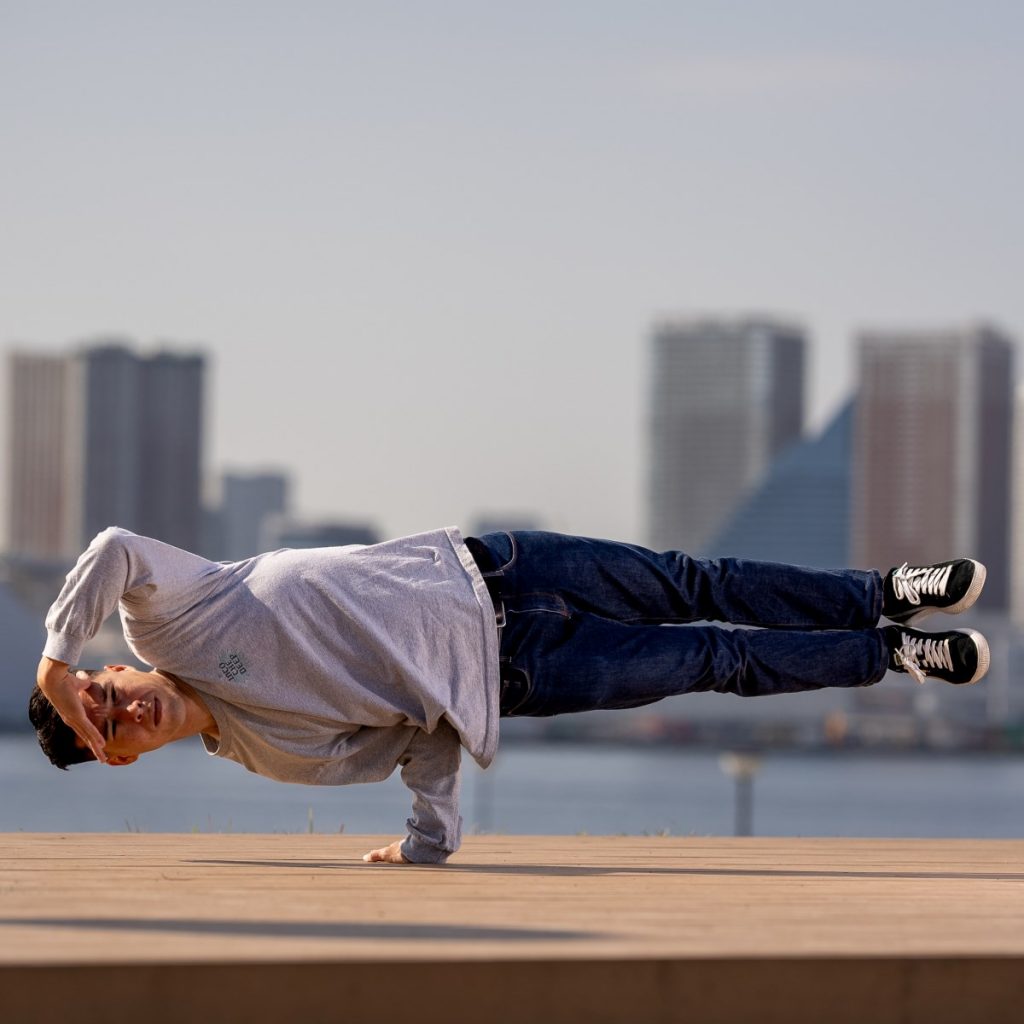
Breaking's Future
What would you like to see for the breaking community in the future both nationally and globally?
In Japan, I would like to see the breakers take a little bit more time to understand the background of what they're doing. To see those dancers who are going to be winning gold medals or whatever understand and pay a little bit of tribute and respect to where this comes from.
Because this is an American dance. They're dancing to hip-hop, but they don't know what the lyrics are about. They're just going off and doing crazy moves, but a lot of these movements have meaning.
And a lot of what's being discussed in these rap songs we're dancing to, they discuss the cultural background from which breaking came. And I'm not from that [background] either. But I still try to make sure that I understand.
As a global scene, I want everybody to get some of the success of where Japan is at. Because other people just don't have the opportunities that are here [in Japan]. I would like to see the rest of the world be able to live doing what they love.
RELATED:
- B-girl Ami Wins Historic Gold in Women's Breaking at the Paris Olympics
- Shigekix Misses Out on Podium as Breaking Makes First, and Perhaps Last, Olympic Appearance
- Paris Olympics Wrap-Up: Tokyo Reflects on the Athletes' Success
- Taiwan Music Festival in Tokyo Showcases the Latest Talent and Trends
Author: Natasha Takahashi

Nagoya Basho Tournament Records
| Day | Opponent | Result |
|---|


















You must be logged in to post a comment Login